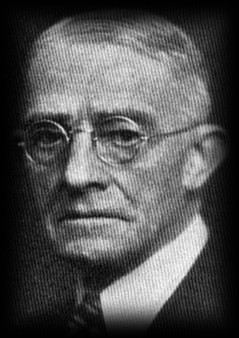
 |
|
|

Edward A. Beeton (1862-1943)While it is Henry Playtner who is synonymous with the CHI, Edward Beeton deserves a special place in the school's history as well because it was he who made the dream of a horological school a reality. For some time Beeton had struggled with the idea of opening such a school and finally, urged on by friends and members of the trade, decided that, in 1890, the time was right. His first action was to retain the services of Henry Playtner and having done that, placed a letter in The Trader which read, in part: "... there is a universal desire for a Horological School. ... We hope to announce in the next issue of THE TRADER that all arrangements are completed, and the School in active operation." And the rest is horological history Edward Abraham Beeton was born in the state of New Hampshire on July 1, 1862, the oldest child of Joseph Edward Beeton and the former Mary Anne Mole. His siblings were Harry, Mary and Mable. Although Beeton's father was English, the family settled in Mary Anne's native United States, where Edward and his brother were born. Around 1867, when Edward was still quite young, the Beetons moved to Canada and settled in the St. Catharines area where his father worked as a druggist. Beeton started his career in watchmaking around 1875 when he was apprenticed to Fowler and Company in St. Catharines. Following his indenture he moved to Toronto and worked for P.W. Ellis and the following year accepted a position with Kent Brothers. It was there, in 1886, that Beeton met Playtner when the latter signed on as a member of his technical staff. The pair worked together for three years before Beeton decided to open his own shop, but by then a friendship had been forged and when Beeton decided to open a horological school, it was Playtner who was chosen to be its co-director. Considered "one of Canada's greatest watchmakers" and being determined to make the school a success, it seems unusual that Beeton stayed at the CHI for only two months. It seems especially odd since in his June 1890 letter to The Trader, he stressed the point that "too much attention cannot possibly be devoted to it." Still, by August 11th, he was gone and Playtner was left in charge.
great craftsman, he lacked the common tact which wins friends and influences people. As it happens this never mattered to Mr. Beeton." It has been speculated that the friends had a falling out, which might be close to the truth. If Playtner had been considered "difficult", he had met his match in Beeton. In an article about Beeton in "The Trader and Canadian Jeweller", it was noted that "…it required a great deal of understanding to reach the inner quality of the man. While a great craftsman, he lacked the common tact which wins friends and influences people. As it happens this never mattered to Mr. Beeton." In 1903, Beeton accepted a position with the American-based Elgin National Watch Company as a travelling representative "on a goodwill and technical mission for the firm" and a year later opened the first Canadian office to develop the business north of the border. By 1912, Beeton was back on his own at the Beeton Watch Company where he was joined by two of his sons, Edward and Ross. The boys stayed with their father for about two years then both moved on to other employment. The Beeton Watch Company closed shortly thereafter. Beeton's whereabouts for the next few years is unknown but a 1920 Census found him living in New York City where he was listed as a "watch manager." It is unknown if he had his own shop or whether he was working for others. Not long afterwards he returned to Toronto where he opened one last watch repair business. He would stay with it until he retired in 1933. On a personal note, Beeton married the former Lillie Agnes Bingham on April 11, 1881 and together the couple raised six children: Maude, Edith, Nellie, Frank Ross, Edward, and John. During their years in Toronto, the family moved 17 times. Beeton died on October 20, 1943 after a short illness. Coincidently, he died exactly one month to the day after his old friend, Henry Playtner.
|
